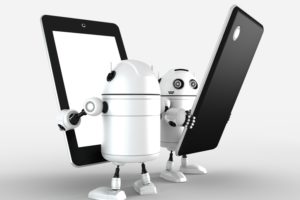Artificial Intelligence (AI) got the massive potential for future applications. AI is entering different areas of our life slowly. Robotic evolution should not fear anything. The arrival of AI into the healthcare industry is more about the expansion, sharpening, and easing the minds of the physician. The doctors can do the same to their patients. Applications for AI in medication go past at basic work. From intense symptomatic calculations to finely-tuned careful robots, the innovation is making its essence well-known across the medical verticals.
artificial intelligence in medicine
AI has a place in the pharmaceutical industry. AI is an established portion of a patient’s care taking team and understands how AI measures up to human specialists. According to a recent exam held by Babylon Health, a digital healthcare startup, the company’s AI, in a series of robust tests, has demonstrated its ability to provide health advice which is on-par with practicing clinicians. The key results of the test are: Babylon’s innovation gives health data for administrative reasons. The tests completely identify the analytic exams taken by specialists as a benchmark for accuracy. Babylon’s AI benefit remains a data benefit, as opposed to a medicinal diagnosis. AI is equipped for beating human doctors in diagnosing challenges that require a fast careful decision.
For example, deciding whether a wound is harmful or not.
According to the data analyzed by MIT, it was revealed that there were 144 deaths and 1,391 patients injured during surgeries. These are performed by the AI, mainly due to technical glitches or complications. The report also mentioned that a relatively high number of casualties, a vast majority of procedures were successful as well. Even the robotic surgery could perform well in some special cases. The more complex surgeries are best-taken care by human surgeons. AI becomes more reliable. AI’s part in medicine will just develop and become more integral. If the industry booms, we shouldn’t accept AI speedily or unsystematically. Systematic and analysis-based adoption is the way to go in the future. know more AI in Business Intelligence Applications
Humans vs Artificial Intelligence
Already, Artificial Intelligence (AI) is as reliable as human physicians in diagnosis. Researchers at a hospital in Oxford, England, Out of 10, 8 times of AI could more accurately diagnose heart disease than human doctors could. At Harvard University, scientists have developed an AI-assisted microscope that can detect life-threatening infections in the blood with as much as 95 percent accuracy. In Japan, Artificial Intelligence has been used in an endoscopic computer system with impressive sensitivity, specificity, and accuracy in detecting colon cancer. Not only AI match human physicians in diagnosis, it has also been shown to outperform them.
A study published in JAMA in December 2017 found that when working under time pressure and needing to make quick judgment calls, deep learning algorithms are more reliable than human radiologists in diagnosing metastatic breast cancer. The findings have important implications for fast turnaround and heavy volume healthcare environments such as emergency departments. This is not the only example of artificial intelligence scoring over humans when it comes to time. IBM’s Watson has demonstrated remarkable diagnostic ability in gleaning information from large amounts of data. Watson accomplished a task that took a human researcher more than 150 hours to complete in a mere 10 minutes.
Recently, Google announced they would release an open source variant of their AI tool for analyzing genetic data. This tool known as Deep Variant was found to be the most accurate at a challenge the previous year. In addition to timesaving, artificial intelligence is a better predictor of impending medical issues. At the University of Nottingham in England, researchers trained an AI tool on data from nearly 400,000 patients. This tool was able to predict more than 350 additional cardiovascular events in a sample of 83,000 patients. This directly translates to 7.5 percent more lives saved.
Not only this, the tool had fewer false positives or overestimation of risk, which is associated with unnecessary treatment. For clinicians, AI offers the possibility of spending less time engaging with devices and technology. Studies have documented that more than half a physician’s time is spent looking at a screen. AI can take on paperwork and documentation and give physician’s more time to focus on face-to-face interactions with patients or achieve a better work-life balance. The important thing to remember is that AI is not competing with or replacing human physicians, but making their life easier and the practice of medicine more optimized.
Mental Health and Artificial Intelligence
Skyler Place of Cogito, an artificial intelligence analytics company in Boston, believes that rather than replacing humans, AI augments humans. The company uses voice recognition systems powered by AI to provide better customer services across a range of industries. In the health sector, they have developed an app that tracks the behavior of a patient with mental health issues. In addition to location data (for example, the patient has not gone home for several days), the app tracks passive signals such as the patient have not spoken to anyone or texted for a period. The app does not track whom the patient speaks to or what is said, but just that a text was sent or phone call made. The app is being tested at several locations in the country in a niche population of veterans, a group that is at high risk of becoming socially isolated. In addition, this population is frequently reluctant to seek mental health care due to the associated social stigma. The app helps improve engagement with mental health services, built trust, and bring about changes in behavior.
AI algorithms analyze audio messages recorded by the patient. These algorithms are designed to detect emotional cues and identify whether the user may be depressed. The algorithms can also analyze the voice of a bipolar patient and detect differences between a manic and depressive phase. The app not only provides real-time data but also information that the clinician can use to track the patient over a period.
Artificial Intelligence and the Future of Medicine
Accenture Consulting has predicted that the role of artificial intelligence in medicine will grow from $600 million in 2014 to $6.6 billion in 2021. Yet, experts warn that this growth should not occur in a hurried or haphazard manner. It is important to tread carefully and remember that machines do not have logical thinking like humans. A good example is an AI tool developed to detect skin cancer. Doctors use a ruler to measure potentially cancerous lesions. When slides of skin lesions were used to train the AI tool, it was found that the tool more often returned as a result of the cancerous lesion when a ruler was present in the submitted image.
The lack of diversity in training materials means that AI algorithms have some inherent bias. For example, the humans conducting the research select the slides or images, the machines are trained on. It is well documented that white men dominate both clinical research and participants in clinical trials. In the end, researchers must weigh the risks and benefits of a technology. Ultimately, humans decide where artificial intelligence should be applied and what should be done in an old-fashioned way. If all the stakeholders make an effort to be inclusive and use AI to build the future that is best for physicians and doctors, this technology can change the shape of medicine.




